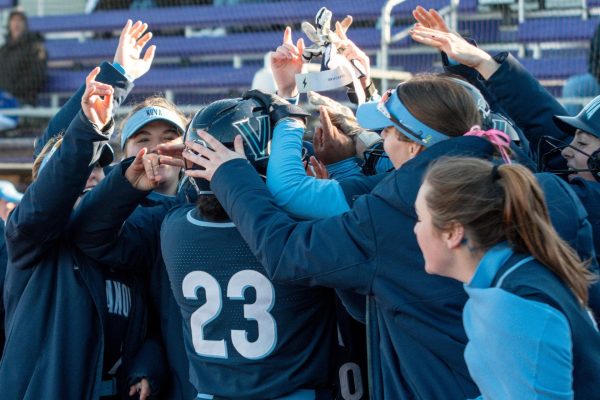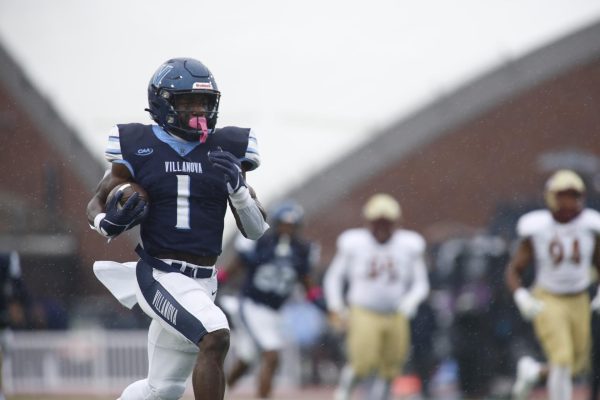KAPALKO: Easy to forget what sports are really about
April 29, 2008
Behind a white-and-blue house there is a big backyard. In the backyard, there is a garage, a garden and a fire pit. A row of trees lines the back, marking the boundary with the neighbor’s yard. In the middle of all this is a volleyball net. In this volleyball net is summer.
On summer nights, two teams are assembled. Sometimes it’s easy; everyone wants to play, and the group is divided evenly based on talent. There is always some protesting, like when two of the best players refuse to play on different teams or when the teams try to push an incredibly uncoordinated player onto each other. In the end, it works out because everyone wants an evenly matched game.
Other times more effort is required because only a few people want to play, so older and younger siblings are dragged out from the house (and, when the situation is desperate, the older sibling’s athletically disinterested girlfriend). But with 20 people or four, the game is played.
Standard rules are generally followed unless everyone agrees to change them. This may happen, for example, when one of the worst players serves once straight into the air and once straight into the net and asks for another try (but never when one of the good players does this). More often, it happens when the game becomes boring.
Each team is responsible for calling the ball out on its own side of the net. Some can never remember if the sidelines are even with the end of the net or the pole. The back line does not exist and therefore is always up for debate. The rule is that it’s in if it lands “within reason,” but no one agrees on what that actually means. There are at least 10 arguments about whether a ball landed in or out each game, but there have never been any fistfights, so it all works out.
The game is played until people feel like stopping or the foot-biting mosquitoes become unbearable or someone hits the ball into the light that illuminates the court after sunset and knocks out the bulb. Then someone lights a fire, and the teams sit around and make s’mores.
There are other places like this one where summer lives: driveway basketball hoops, grassy fields for wiffle ball, beaches for Frisbee. Summer lives in these places. Summer is about play – the uncivilized, undamaged cousin of sports.
Play means no coaches or referees shaping the game for the players. Play completely revolves around the players – kids or adults, athletic or not. Play doesn’t care about winners or losers, although everyone tries to win. It only truly cares about fun. Are you having a good time? No? Well, let’s shift the teams around to make them more even. Let’s play with water balloons instead of a ball.
Sometimes I forget why I love sports. I am disgusted by their commercialization, distracted by their politics and angry at their hypocrisy and corruption. I know how much we value them – enough to rank 10-year-olds, enough to compromise the education of college athletes, enough to spend public money that could go toward education or health care or infrastructure on stadiums – enough to blind ourselves to the fact that yes, we can have too much of them, and we can make them too big. We can hurt people with them. But we don’t like to see this. We love them too much.
Even with all this, I know that there is a reason that I watch sports. There’s a reason I write about athletics, and it’s not just to complain about everything I see that’s wrong with them.
I’m not sure what this reason is. But I think it has to do with this: on some level I still hope and believe that sports are related to play. I still hope and believe that the joy of backyard volleyball exists in high-level sports.
I love these games, even when I hate what society has done with them. The pure satisfaction of hitting a ball in a gap or throwing one to a target or stopping one in its path is unique and powerful. Add in the mental game, the strategy, the relationships within a team and some level of competition, and you have wonderful synergy. It’s easy to forget how wonderful it is, though, because of the damage we’ve done to the games.
Summer – carefree, childlike summer – may be able to help make sense of all this more than any other time of year. If you need to find me over the next few months, I’ll be on the volleyball court in the backyard. Playing.
———————-
Jamie Kapalko is a junior English major from Belmar, N.J. She can be reached at [email protected].












